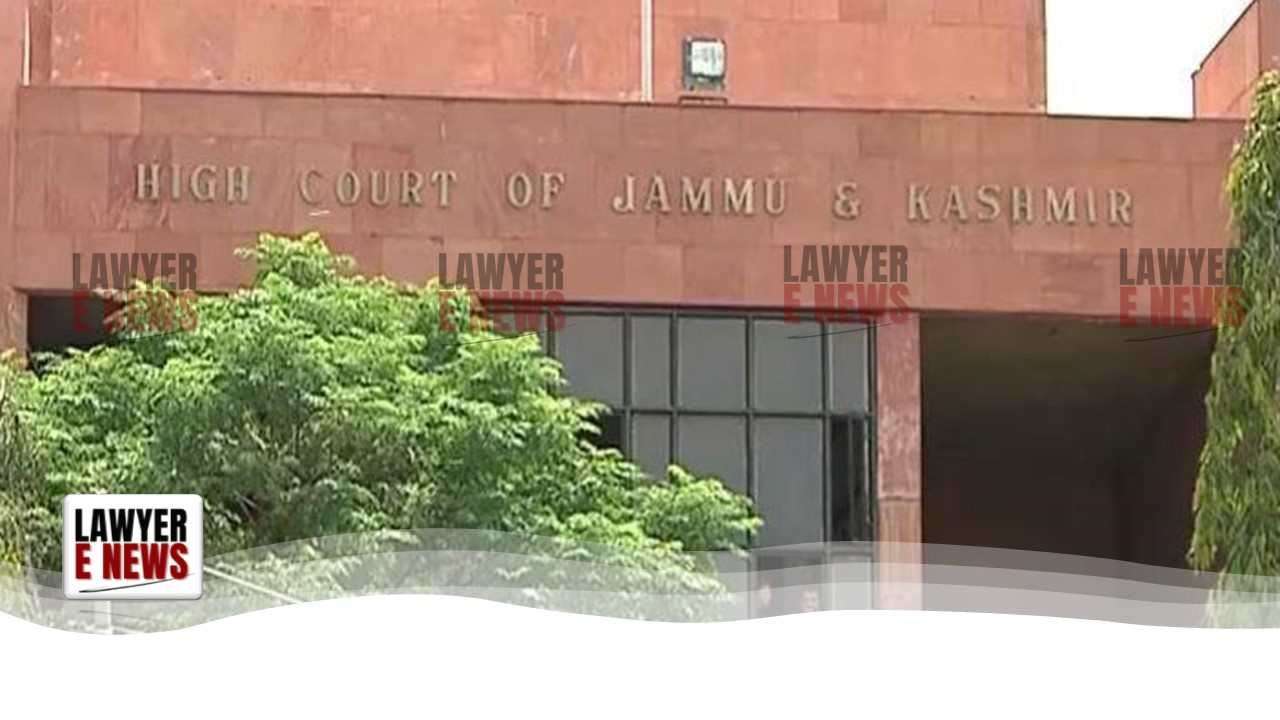-
by Admin
16 February 2026 10:43 AM



The Jammu & Kashmir and Ladakh High Court has ruled that when a defendant presents a plausible defense in a recovery suit, the trial court cannot impose a condition requiring security. Justice Javed Iqbal Wani, in a judgment delivered on February 3, 2025, set aside a lower court’s order that had granted conditional leave to defend in a suit demanding ₹11 crore, holding that such a requirement was “manifestly erroneous and a failure of justice.”
Trial Court Overlooked Settled Law While Granting Leave to Defend
The case involved a financial dispute between Mohammad Shafi Bhat and Bilal Ahmad Bhat. The plaintiff, Mohammad Shafi Bhat, had filed a summary suit under Order 37 of the Code of Civil Procedure (CPC), alleging that the defendant had taken ₹11 crore from him for purchasing land but later failed to honor the agreement. The transactions were recorded in multiple documents, including an agreement to sell, a D.P Note, and a receipt dated March 2, 2020.
When the defendant, Bilal Ahmad Bhat, sought leave to defend, he argued that the agreements were “fabricated and obtained under coercion.” He further alleged that instead of him owing the plaintiff money, it was the plaintiff who had extracted ₹4.1 crore from him under false pretenses.
The trial court, after considering both sides, observed that the defense was “plausible but improbable.” However, it granted conditional leave to defend, directing the defendant to furnish a bank guarantee for 50% of the claimed amount. This requirement was challenged before the High Court.
“Imposing a Bank Guarantee When the Defense is Plausible is Legally Unsustainable”
The High Court found that the trial court’s order was in direct conflict with established Supreme Court rulings. Referring to the landmark judgment in Mechelec Engineers and Manufacturers v. Basic Equipment Corporation (1976) 4 SCC 687, the Court noted that “when a defense is fair, reasonable, or bona fide, the defendant is entitled to unconditional leave to defend.”
"Once the trial court acknowledged that the defense was plausible, it had no basis to impose a condition requiring a bank guarantee. Doing so was legally unsustainable and contrary to binding precedent," the Court ruled.
"A Defense That Raises a Genuine Issue Cannot Be Treated as Sham"
The High Court further emphasized that under the law, security can only be demanded if the defense is illusory, sham, or moonshine. The trial court’s own findings suggested otherwise, making its conditional order “arbitrary and contrary to judicial discipline.”
"A defense that raises a genuine issue, even if improbable, cannot be equated with a sham or moonshine defense. The law is clear that in such cases, leave to defend must be granted without imposing financial conditions,” Justice Wani observed.
High Court Exercises Supervisory Jurisdiction Under Article 227
The plaintiff had raised a preliminary objection on the maintainability of the revision petition, arguing that the High Court could not interfere in an interlocutory order. However, the Court rejected this argument, invoking its supervisory jurisdiction under Article 227 of the Constitution.
"The trial court’s misdirection has resulted in a failure of justice. This Court is duty-bound to correct such an error to uphold the rule of law," the order stated.
Accordingly, the High Court set aside the trial court’s order requiring a 50% bank guarantee and granted unconditional leave to defend the suit. The trial court was directed to proceed with the matter in accordance with law.
Date of Judgment: February 3, 2025
